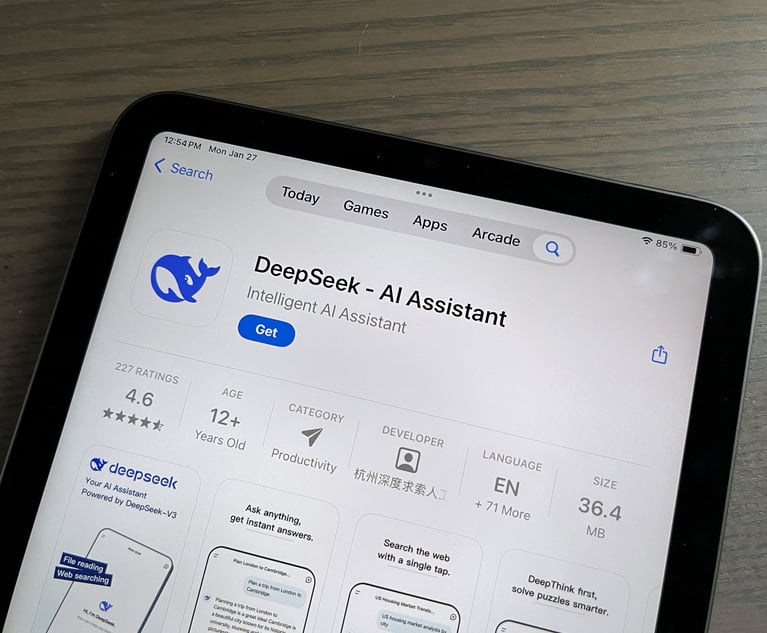California Supreme Court's Clarification of 'Background Check' Laws
Employers must ensure they are following stricter notice and authorization requirements.
October 05, 2018 at 02:50 PM
6 minute read
 Left to right: Jason Brown, Karen Jennings and Robert Quackenboss, Hunton Andrews Kurth
Left to right: Jason Brown, Karen Jennings and Robert Quackenboss, Hunton Andrews Kurth
On Aug. 20, 2018, the California Supreme Court issued its unanimous (7-0) decision in Connor v. First Student, 2018 WL 3966434 (Cal. S. Ct. 2018), ruling in favor of a class of current and former bus drivers who sued their employer for violating one of California's background check laws. It could have significant consequences for employers who do not provide employees and applicants with proper notice or obtain appropriate written authorization prior to consumer reporting agencies' conducting background checks on the employers' behalf. (It is important to note that employers have responsibilities under the applicable statutes, in addition to the notice and authorization requirements, when they discover adverse information within background check reports, though those requirements are not within the scope of this article.)
California Background Check Laws
Many employers retain the services of a third-party consumer reporting agency (CRA) to obtain consumer reports, such as background checks or credit reports as part of the hiring process. California has two state laws with which employers must, generally, comply when they do so. (Employers should also be aware of the federal Fair Credit Reporting Act (FCRA) (15 U.S.C. §1681, et seq.), which has its own notice and authorization requirements when CRAs run “consumer reports,” including a requirement that the employee or applicant give written authorization for the report.)
California's Investigative Consumer Reporting Agencies Act (ICRAA) (Cal. Civ. Code §1786, et seq.) governs the procurement and use of “investigative consumer report[s],” which are consumer reports “in which information on a consumer's character, general reputation, personal characteristics, or mode of living is obtained through any means,” but not credit reports. ICRAA requires employers procuring reports for employment purposes, “other than suspicion of wrongdoing or misconduct by the subject of the investigation,” to certify that it provided the employee or applicant a “clear and conspicuous disclosure in writing,” and that the consumer gave written authorization for the report's procurement. Under ICRAA, an employer may be liable for actual damages or $10,000 per violation, whichever is greater, in addition to other damages, for failure to comply.
The California Consumer Credit Reporting Agencies Act (CCRAA) (Cal. Civ. Code §1785.1, et seq.) applies to “consumer credit report[s],” and expressly excludes character information obtained through personal interviews. CCRAA requires employers to provide written notice informing the employee or applicant that it will procure and use a credit report, and identify the specific basis under Labor Code Section 1024.5(a) for use of the report, but does not include a written authorization requirement.
'Connor v. First Student'
First Student (First) retained a CRA to perform background checks on its employees, which elicited information that included criminal records, sex offender registries, address history, driving records and employment history. Before conducting the background checks, First sent its employees a “Safety Packet” booklet, which included a notice that stated a CRA would prepare an investigative consumer report on the employee. The notice provided that the report would contain “names and dates of previous employers, reason for termination of employment, work experience, accidents, academic history, professional credentials, drugs/alcohol use, [and] information relating to [the employee's] character … which may reflect upon [the employee's] potential for employment.” It included a check box that generally described the employees' rights under ICRAA, informed them that they could check the box if they wanted to receive a copy of the report, and stated that checking the box would release First from all claims and damages arising out of, or relating to, its background investigation. The lawsuit alleged that the notice, and the check box within it, did not satisfy ICRAA's requirement to obtain employees' written authorization to conduct background checks.
The central issue in Connor was whether employment background checks that potentially implicated both ICRAA and CCRAA, because they procured information relating both to character and creditworthiness, required CRAs and employers to meet the more stringent ICRAA notice and authorization requirements. The trial court granted First's motion for summary judgment, finding that ICRAA was unconstitutionally vague because it impermissibly overlapped with CCRAA and failed to put persons of common intelligence on notice of which statute governed their conduct. But the court of appeal reversed, holding that although the statutes overlap, there is no “positive repugnancy” between them that would render ICRAA unconstitutionally vague and preclude its enforcement against First. The Supreme Court affirmed the appellate court's decision, holding that (1) partial overlap between ICRAA and CCRAA does not render one superfluous or unconstitutionally vague; (2) ICRAA and CCRAA can coexist, as both acts are sufficiently clear; and (3) each act regulates information that the other does not, which supports concurrent enforcement.
Impacts of 'Connor'
Connor confirms that both ICRAA and CCRAA govern reports that contain information related to character and creditworthiness, based on public information and personal interviews that are used for employment purposes. Therefore, employers are expected to follow the requirements of both statutes when there is overlap, including seeking a subject's written authorization to conduct a credit check if it appears possible that the information ultimately received may be covered by ICRAA.
In light of Connor, employers should review their procedures and forms to ensure the notice they provide employees and applicants, and the consent they receive prior to conducting background checks, complies with the requirements of the applicable statutes. Further, employers should pay attention to the information they elicit in background check applications or screeners they ask employees and applicants to complete, and the types of information they ask CRAs to procure, to determine whether the background check contemplates information governed by the ICRAA, CCRAA or both statutes.
Finally, ICRAA contains a number of other requirements regarding the type of information CRAs may furnish and when. See, e.g., Cal. Civ. Code §1786.18. For example, CRAs may not furnish certain information that is a matter of public record unless they have verified the accuracy of the information during the 30-day period ending on the date on which the report is furnished. Employers should verify with CRAs that they are doing so.
Robert T. Quackenboss is a partner with Hunton Andrews Kurth in Washington, D.C. He also practices out of the firm's New York office. In his practice, Bob litigates complex employment, labor and business disputes. He may be reached at [email protected].
Karen Jennings Evans is an associate with Hunton Andrews Kurth in San Francisco. An experienced employment lawyer, she provides efficient, effective legal representation in employment, wage and hour, and public accessibility litigation. She may be reached at [email protected].
Jason P. Brown is an associate with Hunton Andrews Kurth in Washington, D.C. In his practice, Jason litigates complex employment and labor disputes. He may be reached at [email protected].
This content has been archived. It is available through our partners, LexisNexis® and Bloomberg Law.
To view this content, please continue to their sites.
Not a Lexis Subscriber?
Subscribe Now
Not a Bloomberg Law Subscriber?
Subscribe Now
NOT FOR REPRINT
© 2025 ALM Global, LLC, All Rights Reserved. Request academic re-use from www.copyright.com. All other uses, submit a request to [email protected]. For more information visit Asset & Logo Licensing.
You Might Like
View All
The Time Is Now for Employers to Assess Risk of Employees’ Use of DeepSeek
4 minute read
Loopholes, DNA Collection and Tech: Does Your Consent as a User of a Genealogy Website Override Another Person’s Fourth Amendment Right?

Trending Stories
- 1Public Notices/Calendars
- 2Wednesday Newspaper
- 3Decision of the Day: Qui Tam Relators Do Not Plausibly Claim Firm Avoided Tax Obligations Through Visa Applications, Circuit Finds
- 4Judicial Ethics Opinion 24-116
- 5Big Law Firms Sheppard Mullin, Morgan Lewis and Baker Botts Add Partners in Houston
Who Got The Work
J. Brugh Lower of Gibbons has entered an appearance for industrial equipment supplier Devco Corporation in a pending trademark infringement lawsuit. The suit, accusing the defendant of selling knock-off Graco products, was filed Dec. 18 in New Jersey District Court by Rivkin Radler on behalf of Graco Inc. and Graco Minnesota. The case, assigned to U.S. District Judge Zahid N. Quraishi, is 3:24-cv-11294, Graco Inc. et al v. Devco Corporation.
Who Got The Work
Rebecca Maller-Stein and Kent A. Yalowitz of Arnold & Porter Kaye Scholer have entered their appearances for Hanaco Venture Capital and its executives, Lior Prosor and David Frankel, in a pending securities lawsuit. The action, filed on Dec. 24 in New York Southern District Court by Zell, Aron & Co. on behalf of Goldeneye Advisors, accuses the defendants of negligently and fraudulently managing the plaintiff's $1 million investment. The case, assigned to U.S. District Judge Vernon S. Broderick, is 1:24-cv-09918, Goldeneye Advisors, LLC v. Hanaco Venture Capital, Ltd. et al.
Who Got The Work
Attorneys from A&O Shearman has stepped in as defense counsel for Toronto-Dominion Bank and other defendants in a pending securities class action. The suit, filed Dec. 11 in New York Southern District Court by Bleichmar Fonti & Auld, accuses the defendants of concealing the bank's 'pervasive' deficiencies in regards to its compliance with the Bank Secrecy Act and the quality of its anti-money laundering controls. The case, assigned to U.S. District Judge Arun Subramanian, is 1:24-cv-09445, Gonzalez v. The Toronto-Dominion Bank et al.
Who Got The Work
Crown Castle International, a Pennsylvania company providing shared communications infrastructure, has turned to Luke D. Wolf of Gordon Rees Scully Mansukhani to fend off a pending breach-of-contract lawsuit. The court action, filed Nov. 25 in Michigan Eastern District Court by Hooper Hathaway PC on behalf of The Town Residences LLC, accuses Crown Castle of failing to transfer approximately $30,000 in utility payments from T-Mobile in breach of a roof-top lease and assignment agreement. The case, assigned to U.S. District Judge Susan K. Declercq, is 2:24-cv-13131, The Town Residences LLC v. T-Mobile US, Inc. et al.
Who Got The Work
Wilfred P. Coronato and Daniel M. Schwartz of McCarter & English have stepped in as defense counsel to Electrolux Home Products Inc. in a pending product liability lawsuit. The court action, filed Nov. 26 in New York Eastern District Court by Poulos Lopiccolo PC and Nagel Rice LLP on behalf of David Stern, alleges that the defendant's refrigerators’ drawers and shelving repeatedly break and fall apart within months after purchase. The case, assigned to U.S. District Judge Joan M. Azrack, is 2:24-cv-08204, Stern v. Electrolux Home Products, Inc.
Featured Firms
Law Offices of Gary Martin Hays & Associates, P.C.
(470) 294-1674
Law Offices of Mark E. Salomone
(857) 444-6468
Smith & Hassler
(713) 739-1250







